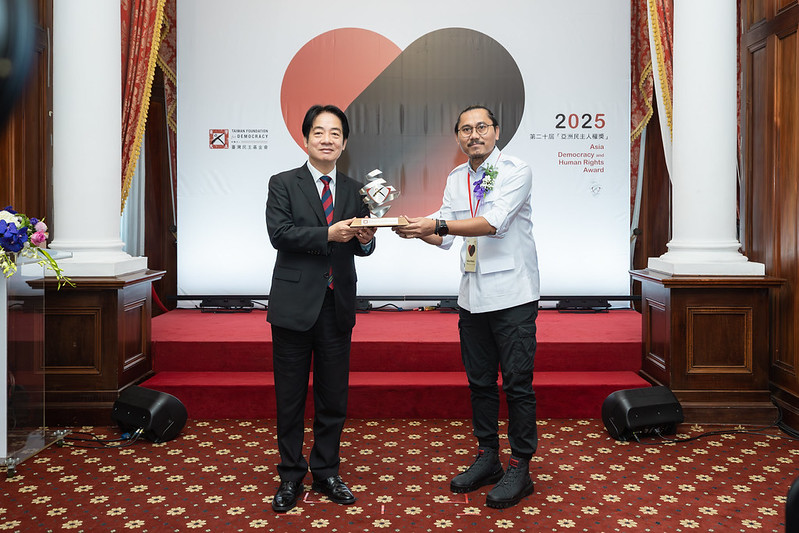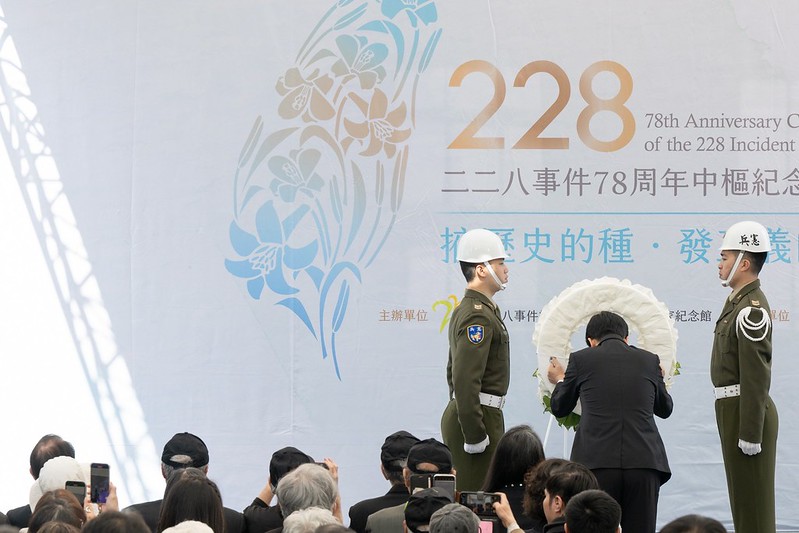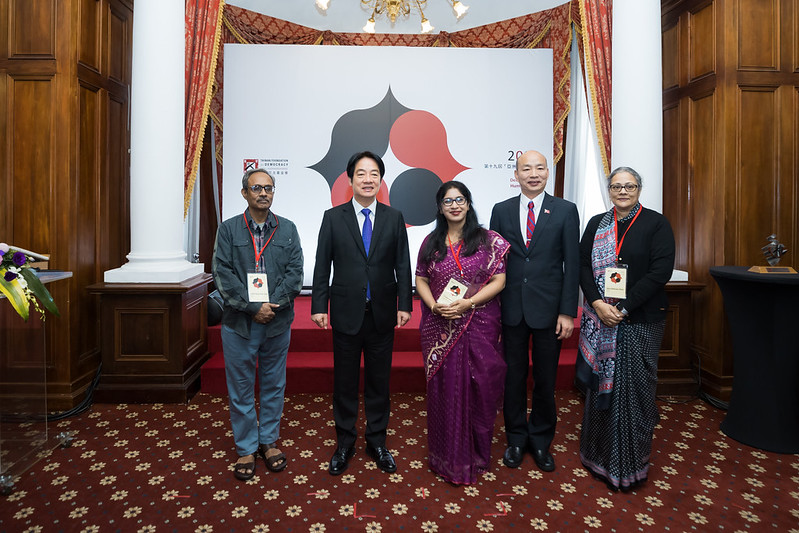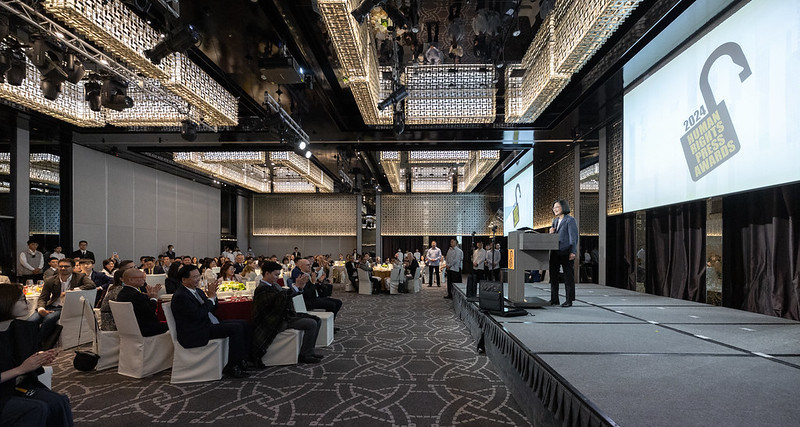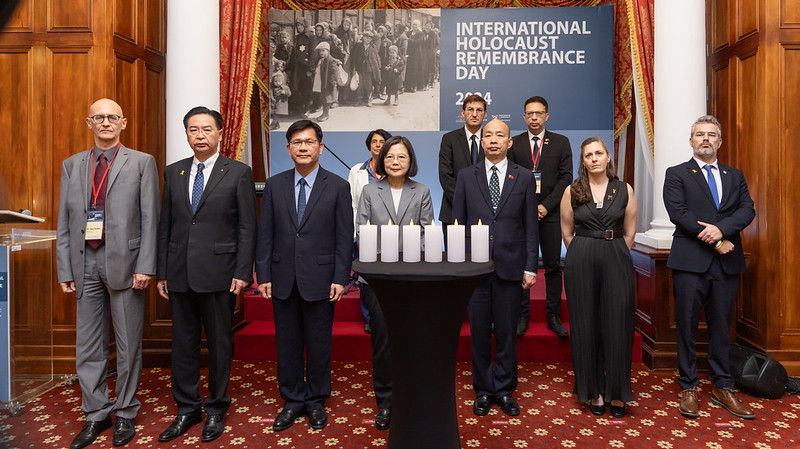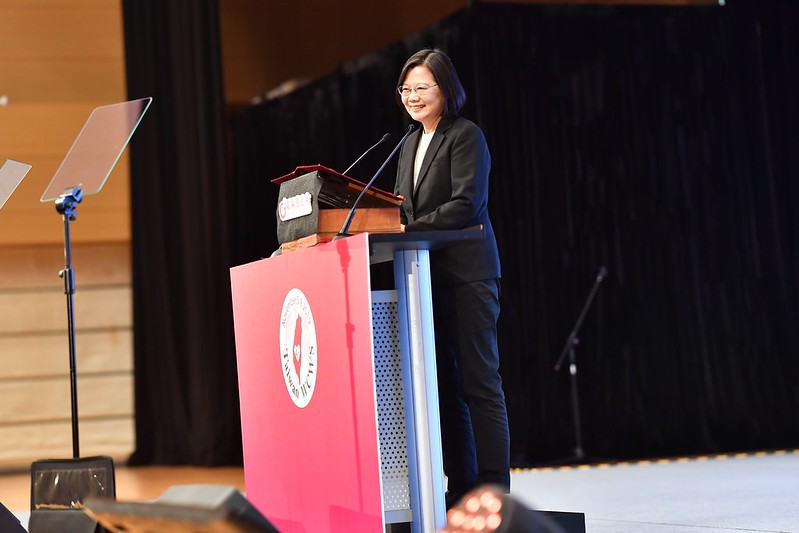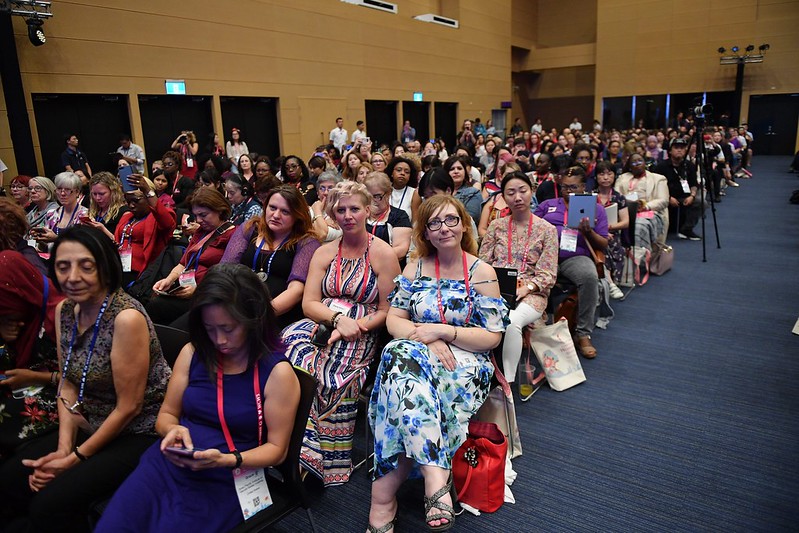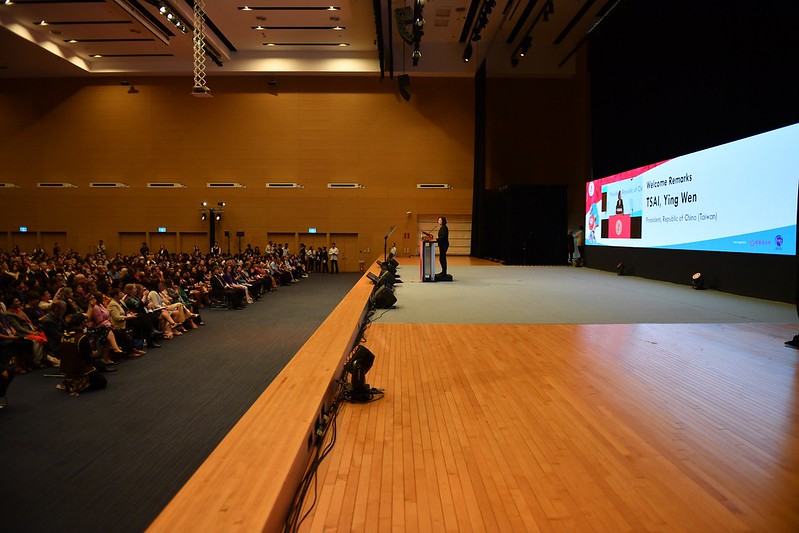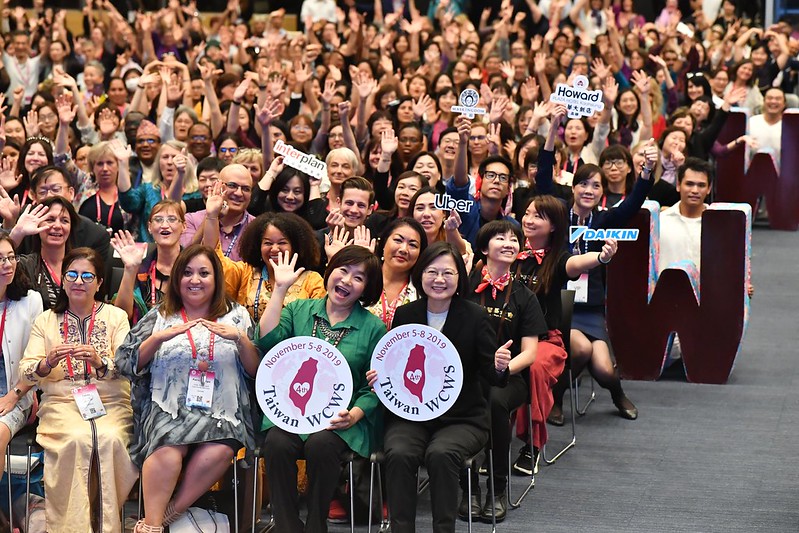News & activities
 News releases
News releases
While attending the fourth World Conference of Women's Shelters on the afternoon of November 5 in Kaohsiung, President Tsai Ing-wen stated that Taiwan is continuing to work to achieve gender equality and became the first country in Asia to legalize same-sex marriage this past May. Taiwan also ranked highest in gender equality in Asia, she said, and topped the list in Asia in the World Bank's 2019 Women, Business, and the Law report. The president emphasized that we will continue to work with our partners around the world to foster global gender equality, help free more women and children from the threat of violence, and allow them to enjoy a life of dignity and equality.
A transcript of President Tsai's remarks follows:
It is an honor to be here today, and for our international guests: welcome to Taiwan. For more than a decade, the Global Network of Women's Shelters (GNWS) has worked to bring together governments and civic organizations to end violence against women and children.
I want to take a moment to thank all of you for your contributions to women's and children's rights. Your work has impacted lives and helped create safe spaces for women and children across the globe.
Around the world, women face discrimination and the threat of violence in many forms. But Taiwan has made advancements in gender equality, through the joint efforts of activists in the women's movement and the government.
In 1998, we enacted the Domestic Violence Protection Act. In 2002, we passed the Act of Gender Equality in Employment to foster equality in the workplace. In 2004, we passed the Gender Equity Education Act to provide gender equality education in schools, and begin instilling gender equality concepts from a young age.
As a responsible member of the international community, we are continuing to work to achieve true gender equality. And after a long and difficult process, Taiwan became the first country in Asia to legalize same-sex marriage this past May.
Women are truly the backbone of Taiwanese society. In politics, nearly 40% of legislators in Taiwan are women, ranking us 10th in the world for women's representation in legislature. Women also account for more than 40% of executive positions across government agencies and state-owned enterprises.
According to our government's 2019 Gender at a Glance in Taiwan report, Taiwan ranked highest in gender equality in Asia using the United Nations Development Programme's Gender Inequality Index standards. In the World Bank's 2019 Women, Business, and the Law report, Taiwan also topped the list in Asia.
Still, we have a long road ahead of us. In the future, we will continue to work with our partners around the world to foster global gender equality. And I hope we can use this World Conference of Women's Shelters to help free more women and children from the threat of violence, and allow them to enjoy a life of dignity and equality.
In closing, I want to welcome you all once again to Taiwan. I hope that you will take advantage of your time here to experience Taiwan's natural beauty, as well as our warm and friendly culture.
